Here’s the deal – you take everything you have worked all your life for; a beautiful apartment, a fabulous job, a dream car, family & friends and, most importantly, a season ticket for Leeds Carnegie Rugby Club (with promotion back to the big time on the cards!). Then swap it for a flat designed by Joseph Stalin after a night on particularly cheap 60% vodka – wires sticking out of the wall, broken windows, a bathroom that Neanderthal man would drag himself out of by his own hair and a kitchen that would give Delia Smith an instant nervous breakdown. Add to that no job, a new language that might as well be Mandarin to me and a population with the patience of a coked-up wasp. Oh yeah, and a full-on war taking place just down the road!
Aside from some clothes my entire life resides in a box – well 36 boxes to be precise, all carefully (or so I was assured) stored in a big yellow container. After being relieved of £162 in excess baggage charges (you are welcome Thomson!), I boarded a plane to travel more than 2000 thousand miles and get unceremoniously dumped in a country I had been to many times and yet didn’t really know. A country I instinctively knew I already loved. A country called Israel.
I have walked the walk from aircraft gate to immigration and baggage reclaim at Ben Gurion airport many times, but this time it was different. Very different. It was visceral. A feeling of weightlessness. A sense of calm and rightness and certainty. Had my cordon-bleu airline meal been laced with drugs? Wait. No. That would have required a meal to have actually been served for that to happen. Then it hit me this was the feeling you feel when you are doing something you believe in, something you know you have to do.
After a few days of acclimatisation (drinking, dancing, chasing women and sitting on the beach) I started back at school. A 39 year-old man suddenly becomes a first grader again. Learning Hebrew at Ulpan with people from all over the world, Peru, Columbia, Germany, Cuba, Russia to name just a tiny selection of nationalities – its like a bizarre reality-TV version of the 1980’s sitcom, “Mind Your Language”. Everything is in Hebrew – English is pointless, for once English speakers are in the minority.
It works though. Or at least it would probably work if I was still there. But I’m not. I have travelled the 50 or so miles south of Tel Aviv to a town called Sderot, in the Western Negev region of southern Israel, approximately 750 metres from the border with Gaza.
Sderot, and many similar towns in the region, have been subject to the unforgiveable fire – eight years of missile attacks from Gaza. Eight years of terror, eight years of death and injury, eight years of destruction and eight years of paralysis. Paralysis of every aspect of their lives, from the serious to the mundane -families are torn apart, schooling is disrupted, people are terrified and constantly fearing for their lives and those of their families. The kind of paralysis that comes from witnessing 15 year-old girls having to dive on top of their baby brother to save him from a Qassam missile, bringing an end to that girl’s life with savage prematurity.
All the day-to-day things we take for granted are effected too. Overflowing bags of groceries are left abandoned on the ground outside the supermarket as people run for the bomb shelters. A night at the movies with your girlfriend where there are more explosions outside the cinema than on the screen. And imagine learning to drive, a nerve-wracking experience at the best of times, when suddenly, without warning, you have to do a real emergency stop and run for your life to the nearest shelter.
It took approximately 20 minutes following my arrival in Sderot to get my first experience of a missile attack. You have 15 seconds, that’s right 15 seconds – about the time it will take you to read this sentence – to make it to the shelters when the Tzeva Adom – or red alert – sounds. If the days are scary, the nights are even worse! In my first week in Sderot I daren’t undress to go to bed or take a shower in case the siren went off. And my fear wasn’t unfounded – I couldn’t put off going to the toilet any longer and, sure enough, as I sat there the alarm was sounded. There you are, trousers round ankles and you know that it is pointless even thinking about moving because you just don’t have the time. So you sit and you pray.
However, this is not about me and my short time in Sderot. This became abundantly clear today when the Tzeva Adom once again sounded. The usual panicked dash for the shelters ensued, only this time an elderly lady fainted before she could reach our shelter. Everyone helped lift her into the rocket-proof structure, with no regard for their own safety. When she came round, hyperventilating, the fear etched onto her face was tangible. It was as if she was being murdered a thousand times and yet still had no release from her killers. Quietly, I wept for this old woman who had done nothing to deserve such terror in her life, and quietly I wept for the people of this ravaged region, all the people, who simply want to live their lives in peace.
So what am I doing here? Not nearly enough! I am simply giving some of my time, of which I have plenty, to help a group called the Sderot Media Centre (SMC – www.sderotmedia.com ). A group whose focus is to try and ensure that the voices of the people of Sderot, and the Western Negev, are represented in the maelstrom of media reporting of the current conflict. Voices that are all too conveniently forgotten, or deliberately ignored, in the numbers game and the rush for ratings.
And talking of voices, there are people in Sderot who have lost the ability to use their voices. They have lost their ability to express themselves and to talk about their nightmare. There are children born into violence and knowing nothing of life other than missiles. The psychological toll of this is enormous. It is estimated that 30% of the children here are suffering from post-traumatic stress disorder. Except this isn’t post-trauma, the trauma keeps on going and going. The SMC has started to set up projects aimed at helping children find a way of expressing themselves through theatre and creative arts. But it is a drop in the ocean and the work will have to continue for many years irrespective of any end to the conflict. So much more needs to be done, and there is so much more that can be done, but as always it is a question of support and resource – commodities that are in scare supply right now.
The amazing thing about the people here is not their ability to carry on with life despite the torture – for this they have no choice. They have to. What’s amazing is the enduring desire for peace, the desire to live alongside the people just one kilometre away whose leaders send missiles into their homes and schools. As well as being sad for themselves many are sad for the appalling plight of countless innocent Palestinians. The pain they feel when their own children are killed is naturally and easily transferred to Palestinian parents when their children are killed.
Despite their famous lack of patience, the people here are not blood-crazed sociopaths. The men and women, or should I say boys and girls, serving in the Israeli Defence Forces (IDF) are normal, everyday people with dreams and aspirations far removed from uniforms and guns. They are bright young people with their whole lives to look forward to. They are supported by the reservists, up to 45 years of age, who have had to leave their families, their studies and their jobs as doctors, accountants, architects and shop-keepers. But after eight years of attack they have to do something to protect their country, no matter how unpalatable it may be – the terror simply has to end.
Amidst all of this turmoil and distress, what has happened to the love for Israel that I instinctively felt before I stepped off the plane into my new homeland? It’s stronger than ever. Would I reconsider my swap? Not for one second! Please support Israel and please support the Sderot Media Center, PO Box 472, Sderot, Israel 80100, tel: +972 (0)773002576, email: [email protected]



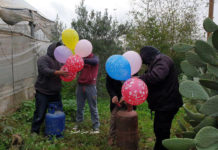

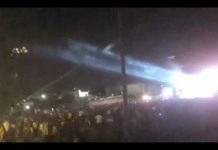
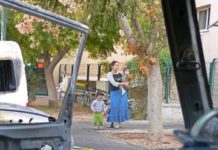
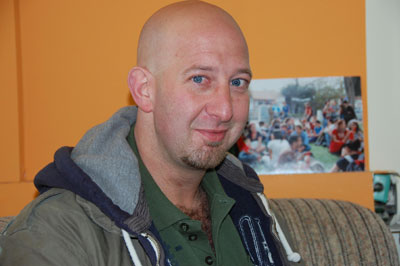


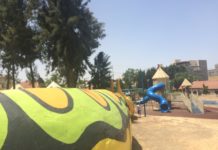

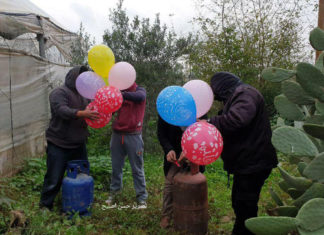
You always could write emotively. Aliyah going well then?